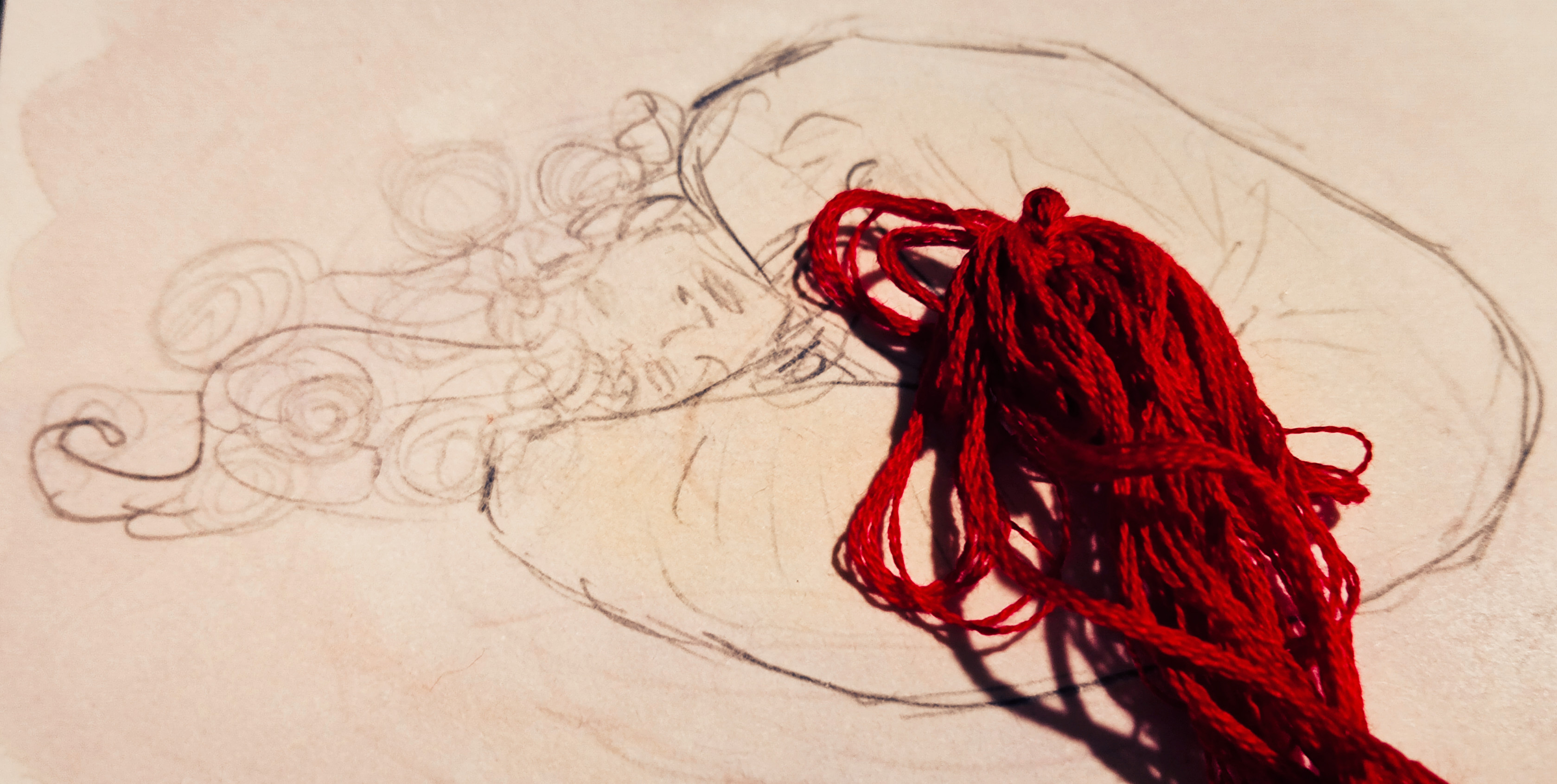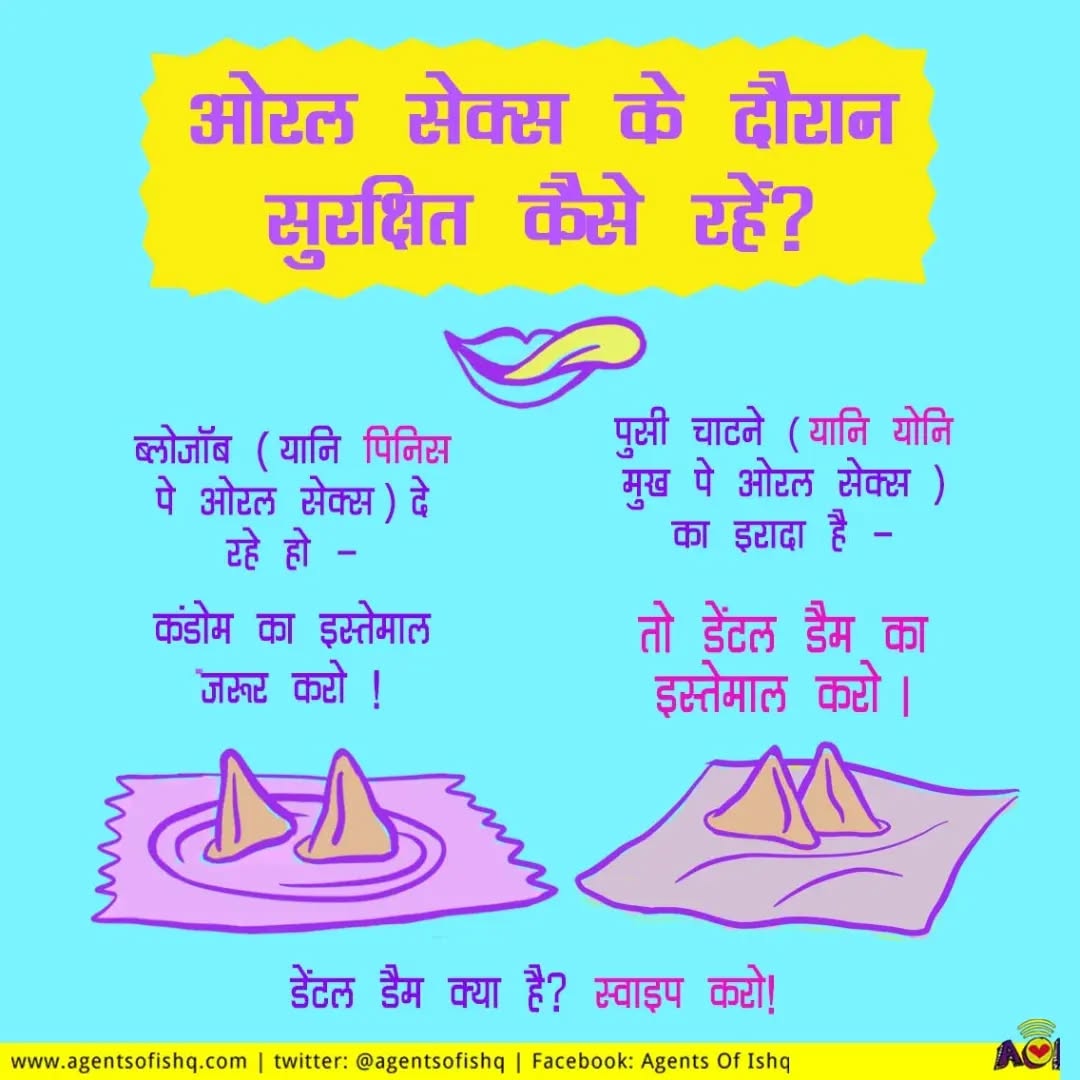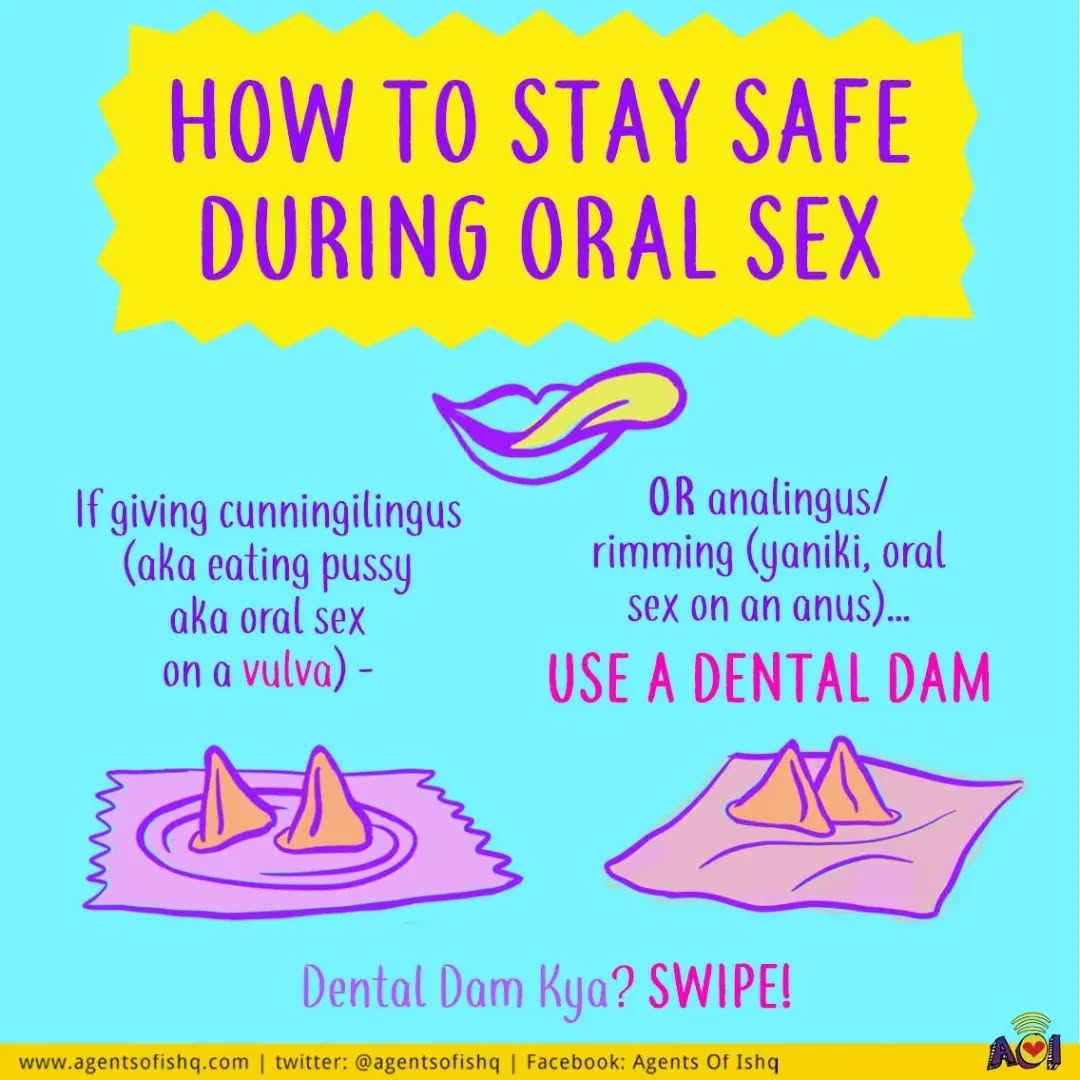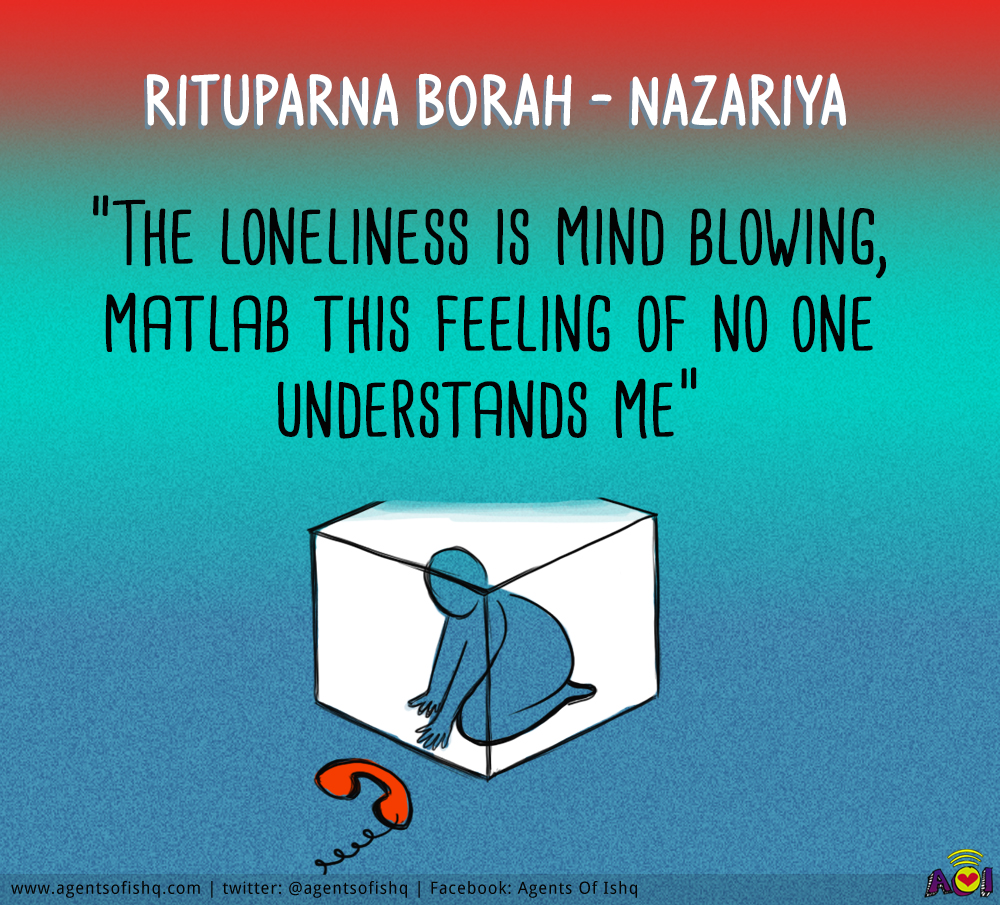
(Nazariya is an feminist queer collective. They have run a helpline for queer people for almost 7 years.)
“The society that we come from, kahan humko vulnerable hone diya jata hai? Does the workspace give that space, does the society give that space, does the feminist movement give that space? The idea of this strong feminist woman is something we internalise - so we don’t get that chance to be vulnerable. To be ashamed of being vulnerable is something that we have heard and felt often. And then you realized that we are judgemental of that shame also. To acknowledge vulnerability is something I have learnt from queer counseling. The reason we started Nazariya was that some of us who were part of the feminist movement and also a part of the queer movement felt that both the movements were not being intersectional with each other. There were very few organizations that were, and are, queer, feminist and working for queer women and transpersons in India. Our helpline too, was an outcome of that. Unlike counseling, we encourage ourselves to talk about our own lives as well, because it’s a peer helpline - not in the sense of giving gyaan about our lives though. Among people who challenge heteronormative norms of gender and sexuality, who are queer and trans, the loneliness in mind blowing - matlab this feeling of no one understands me. So, by sharing our experiences as well, we try to tell them we understand, we hear you, we feel you, we know it is very difficult, we are from the community, this has happened to us too, there’s so many of us. So when we say ‘us’, so many of ‘us’, these are the things they see. This has also helped us articulate our own vulnerabilities. You feel vulnerable; every call makes you vulnerable; answering 5-6 calls sometimes becomes very very difficult. Vulnerability is a part and parcel of our lives. The helpline has helped me to politically not make those black and white boxes, as things are really really really really messy and feelings are very messy. To be able to talk about our vulnerabilities, to be able to shed a tear, to be able to say that I feel jealous of that person, to be ‘non-political’ - in that analytical, distanced sense - and very open - I think that is what is taught in queer peer counseling and that is what we have been trying to practice when handling the helpline.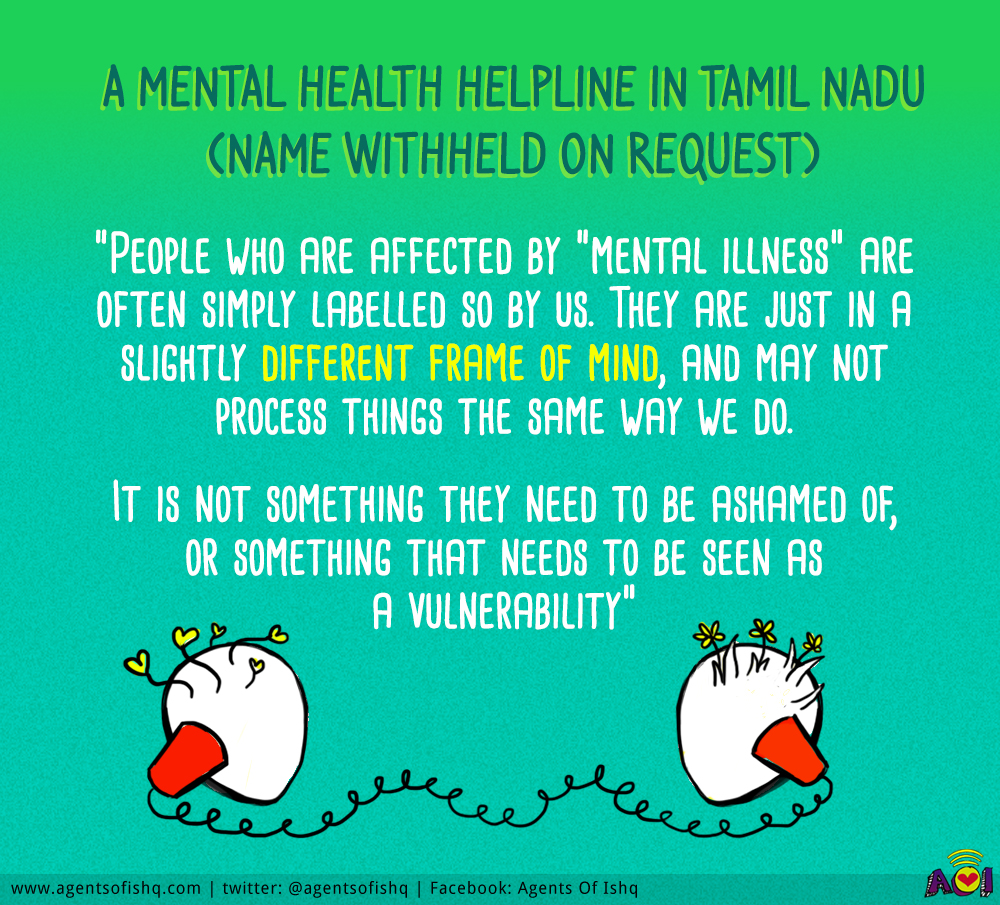 “I have been working with the institute for over 6 years now. We are a crisis helpline, and receive calls when people find women with mental illnesses who are either homeless, or not receiving sufficient care. We then take them in, help them find the care they need, and also work to rehabilitate them post the 6 month program at the institute.In my experience here, I have learned how vulnerability is experienced in different ways, by different people in the same situation. Let me share one experience with you--we brought this woman to our centre last lockdown...she was around 60, and was found wandering the streets in Chennai. She told us she had left home, in Ratnagiri - Maharashtra, about 20 days back, but didn’t remember any other details. Later, we learned that, she had, in fact, been away from home for 25 years. She had gone for a wedding and lost her way. She took a train and ended up in Chennai, clueless as to where she was. She had a daughter who was 7 at that time, and a son who was 13. They are both married now, and well settled. The children had grown up alone, their father had passed away a few years before their mother left. They still visited the police station every week to ask about their mother. For 25 years. When they heard about their mother, they rushed to this city. I don’t know how they managed to get here, because this was during peak lockdown when we were struggling to even get an e-pass. While they were so happy to meet their mother, she was confused and disturbed because she had no idea who they were. She had no memory of them. It was a moment of acute vulnerability for both parties. She knew she was away from home, but didn’t recognise what home was. And they knew this was their mother, but she seemed to have no memory of them. Slowly they spoke to her, calmed her down, showed her pictures, spoke of old memories, described the town, etc. She then started to listen to them. She had no idea who they were, but their love and patience was what calmed her down and truly connected with her at that point.People who are affected by “mental illness” are often simply labelled so by us. They are just in a slightly different frame of mind, and may not process things the same way we do, and may react differently. It is not something they need to be ashamed of, or something that needs to be seen as their vulnerability. They are often people who have lost their homes, their families, their loved ones—they are in a different frame of mind, and we need to respect and understand that. They respond to patience and care. And this holds true for any vulnerable person. They may need/want to share their experience with us sometimes, but we should remember to respect their decisions and space, and not interrupt this. Gradually, once a rapport is built, and we have their trust, they may decide to let us enter at their own pace, and help them in whatever way we can. But we need to wait for this.”
“I have been working with the institute for over 6 years now. We are a crisis helpline, and receive calls when people find women with mental illnesses who are either homeless, or not receiving sufficient care. We then take them in, help them find the care they need, and also work to rehabilitate them post the 6 month program at the institute.In my experience here, I have learned how vulnerability is experienced in different ways, by different people in the same situation. Let me share one experience with you--we brought this woman to our centre last lockdown...she was around 60, and was found wandering the streets in Chennai. She told us she had left home, in Ratnagiri - Maharashtra, about 20 days back, but didn’t remember any other details. Later, we learned that, she had, in fact, been away from home for 25 years. She had gone for a wedding and lost her way. She took a train and ended up in Chennai, clueless as to where she was. She had a daughter who was 7 at that time, and a son who was 13. They are both married now, and well settled. The children had grown up alone, their father had passed away a few years before their mother left. They still visited the police station every week to ask about their mother. For 25 years. When they heard about their mother, they rushed to this city. I don’t know how they managed to get here, because this was during peak lockdown when we were struggling to even get an e-pass. While they were so happy to meet their mother, she was confused and disturbed because she had no idea who they were. She had no memory of them. It was a moment of acute vulnerability for both parties. She knew she was away from home, but didn’t recognise what home was. And they knew this was their mother, but she seemed to have no memory of them. Slowly they spoke to her, calmed her down, showed her pictures, spoke of old memories, described the town, etc. She then started to listen to them. She had no idea who they were, but their love and patience was what calmed her down and truly connected with her at that point.People who are affected by “mental illness” are often simply labelled so by us. They are just in a slightly different frame of mind, and may not process things the same way we do, and may react differently. It is not something they need to be ashamed of, or something that needs to be seen as their vulnerability. They are often people who have lost their homes, their families, their loved ones—they are in a different frame of mind, and we need to respect and understand that. They respond to patience and care. And this holds true for any vulnerable person. They may need/want to share their experience with us sometimes, but we should remember to respect their decisions and space, and not interrupt this. Gradually, once a rapport is built, and we have their trust, they may decide to let us enter at their own pace, and help them in whatever way we can. But we need to wait for this.” 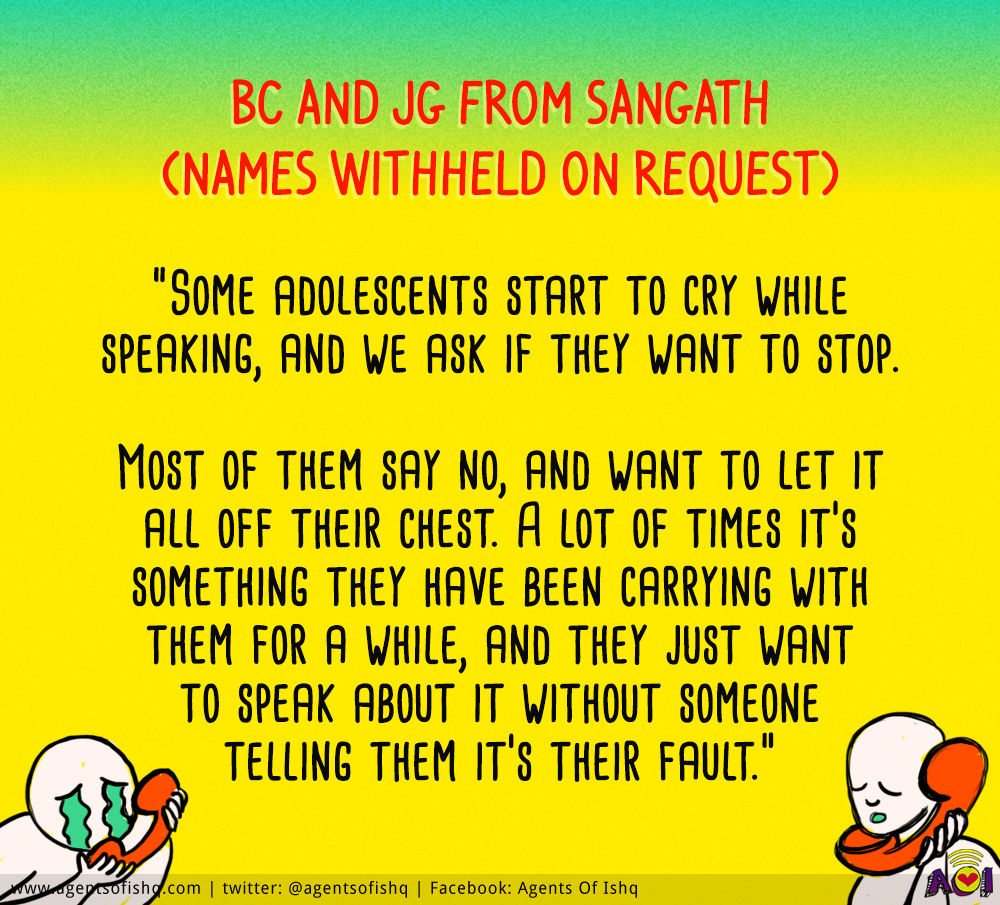
(Sangath is a non-governmental, not-for-profit organisation working in Goa, and other Indian states, for 24 years. )
“I got a call from a front-line worker recently. She was distressed because her other issues were affecting her work, which she was finding very difficult to deal with. She called the helpline since she wanted someone to listen to what she was going through at that particular time. She knew exactly how she had to handle the situation, but she just needed to vent. So, this, we have learned - people reach out when they are distressed, and they need someone to whom they can vent out their feelings, someone who will listen to them. They don’t need your advice. They don’t need you to tell them what has to be done. They have already figured that out. Adolescents, on the other hand, are a lot more vulnerable when they call us up. We look at anger as an emotion, but anger is one of the problems these adolescents face. Because what happens is that there is a lot of in-built frustration – everything is piled up. And they don’t know where to seek help from. Adults have some or the other support system, where they go to express themselves...children may not. They don’t even have the vocabulary or the understanding of situations a lot of the time to be able to pinpoint to the exact issue. They also differ from adults in that they are vulnerable to learning behaviours. If you look at their behaviour, and ask them about a certain reaction, you may understand that it is a product of a behaviour they have experienced. For instance, one of my callers told me: “I get angry. My dad also gets angry, he, you know, hits me sometimes.” Upon asking about their reaction to the situation at this point, they responded: “I just throw away my things, or hit my younger sibling.” So, sometimes these are learned behaviours, and they don’t really know how to recognize and solve particular problems that they are facing. You listen to them, and once they are comfortable enough, they start to open up. Some adolescents tell us about when they have been sexually harassed/abused; it is important that we don’t react to them here, and just listen--no negative emotions on our face, even unconsciously. Sometimes they start to cry while speaking, and we ask if they want to stop. Most of them say no, and want to let it all off their chest. A lot of times it’s something they have been carrying with them for a while, and they just want to speak about it without someone telling them it’s their fault, or because they need some support. And that’s what we offer them.After gaining certain experience, after handling so many clients, our own resilience has developed over time. You realise they are not different, isolated situations. These are common experiences. That thing plays in your mind. And you hope the patient who has called will be fine at the end of the day.”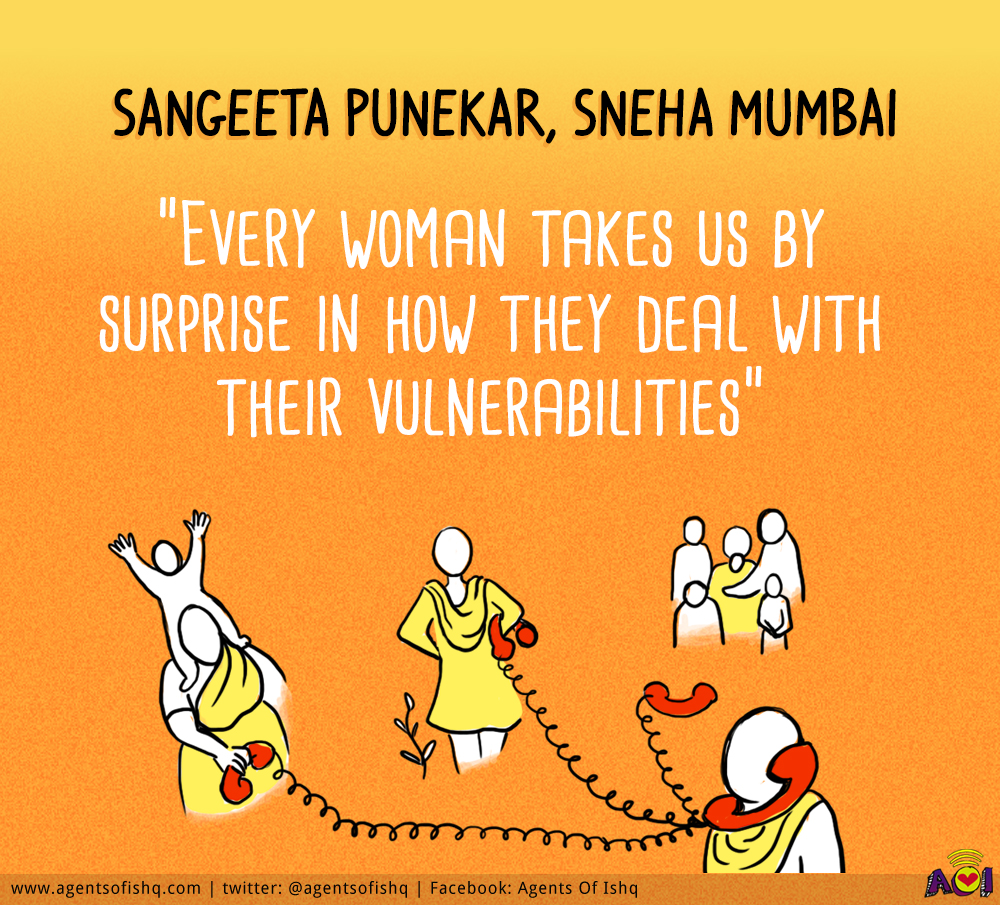
(SNEHA Mumbai is a non-profit organisation that works with women, children, and public health and safety systems. They run a one-stop crisis centre at KEM Hospital.)
“The program that I’m working with is PVWC, that is Prevention of Violence against Women and Children. We are working on the model of the life cycle of a woman - how she interfaces with violence and with deprivation, neglect etc. at different stages of her life. We look at how we can build a systematic kind of an input so that she does not go through this at every stage of her life - we work with the police, health systems.We receive calls from women in vulnerable situations, who in that moment decide that they want/need to do something to make the violence stop. It could be after talking to a friend/sister, that encourages this disclosure. Or they could be going through violence and don’t want their parents to know what they are going through, and try to hide it from them. But one day, if they get to know, these women feel completely motivated to come out in the open and talk about what’s been happening to them. There are women who would say, bilkul bhi ek din bhi main bardaast nahi karungi. They feel that they’re not cut out to accept this fact. We have seen women like Tapsee Pannu in the movie Thappad who take the step (of leaving) after the very first thappad. And then we’ve seen women who have endured it for decades together and then taken the call. A lot depends on how they perceive themselves in that situation. A lot depends on the support system that they have from their natal homes, from their natal families, the matrimonial families. We’ve seen mothers-in-law support their daughters-in-law against their sons (unlike the saas-bahu narrative we are always shown). There are also callers who call from a situation of crisis--they may have been beaten up brutally or locked up in a room, and call from this position.Every woman takes us by surprise in how they deal with their vulnerabilities. Women who we thought were completely dependent on someone suddenly come out and unfurl and start off by themselves. We have women who have started their own enterprises and are doing exceedingly well for their children and themselves. And sometimes when you see an enterprising woman and you would think she is going to do something really magnificent, she would opt to just be dependent on her parents or her brother, which we would not anticipate for her. But it is something that she has chosen to do, and is comfortable with, and so we must let it be.Most often we feel “why me, mere hi saath hua, mere hi naseeb mein tha”... that kind of a thing. And it’s important that we help people uss mein se baahar nikalne ke liye. So we also host a group therapy session, which is basically a solidarity group. A support group, where everyone comes together and shares their experiences to understand that “I’m not alone in this, there are so many women like me who go through similar experiences and we can derive strength from one another. It helps relate to each other’s situations, and understand we are not in all of this alone.”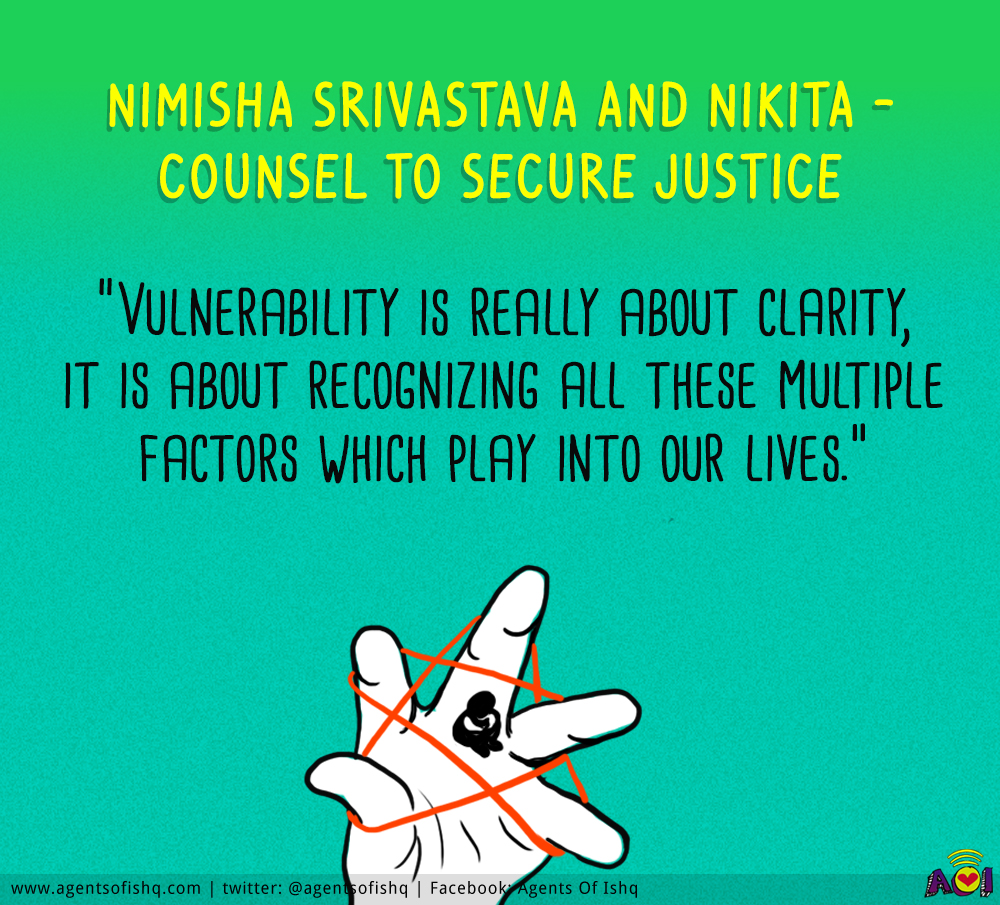
(CSJ is an access to justice organization focused on helping children - survivors of child sexual abuse, domestic violence, children in conflict with law, and children who have committed crimes and harm.)
“We are one of the few organisations in India working in Restorative Justice. Instead of looking at Justice as crime and punishment, the restorative justice process asks the person who has suffered the harm and the person who has committed the harm - what are your needs? What do you need to repair from this? What do you need in order to repair this for the person you have harmed?As an organisation, we came about this process when we were working closely with child survivors of sexual abuse, and a lot of our cases were incest cases where a father or a grandfather had abused the child. Many times it's abuse that has gone on for years. And you know, in our experience, in a number of cases, the children told us that, “if I had known that this is what the criminal justice system was going to do to my life, I would just not have reported.”Reporting is important. But the issue is of the dehumanised process where the state makes all of the decisions and the survivor is going through this traumatic process of recounting again and again and again what they have gone through, to prove it has actually happened to them. This person who has been impacted the most by that action, by that crime, is simply counted as a witness and that witness comes, gives their testimony, and then is out of the process. The criminal justice system lands like a hammer on anyone’s life, anyone who goes in. The children who have committed the crime are supposed to be sent to rehabilitation, but even in that process there isn't really a scope for the child to say sorry or to say “I am remorseful for this harm that I have done, what can I do to repair it?” For example, a person we were talking to had had his mobile stolen by a child. We asked this person whether he would like to have a conversation with this child about his actions, and maybe not forgive him, but try to negotiate a positive outcome from this encounter. And he said, “my property was stolen, yes, and I want it back, but I don’t want this boy to be sent to jail. I see him." He said, "The child’s eyes are red, he is addicted to drugs; I want to send him to a drug rehabilitation center, I don’t want him to be sent to jail.” Vulnerability is something that has to be looked at from this nuanced lens. Even a person who has been the victim of a crime is recognizing this other boy’s vulnerability - that this boy has been brought up in an impoverished, violent atmosphere and therefore has gone into drugs. And now, he hangs out with gangs, and is into stealing mobile phones now, and is going to graduate to higher crimes. Vulnerability is really about clarity, it is about recognizing all of these multiple factors which play into our lives. Vulnerability is not something which is static; it is dynamic, you know. And it is intersectional. It can be layers upon layers of different violations of rights that a person might have experienced. There was this boy, who had come in for just some small petty crimes. For this reason, he had spent months in the observation home (correction facility). Once he finishes his time at the facility, he comes back, but his school refuses admission to him. So basically, after his time at the observation home, he has no place to go to.Working with vulnerability in these scenarios has made me very very conscious of my privilege. I am just more aware of how unequal a society we live in. When I started working with children who have caused harm, I was not looking at them as children who were vulnerable, and needed care and affection. Over time, I started seeing all of them as children who need care and protection. That is something that changed for me.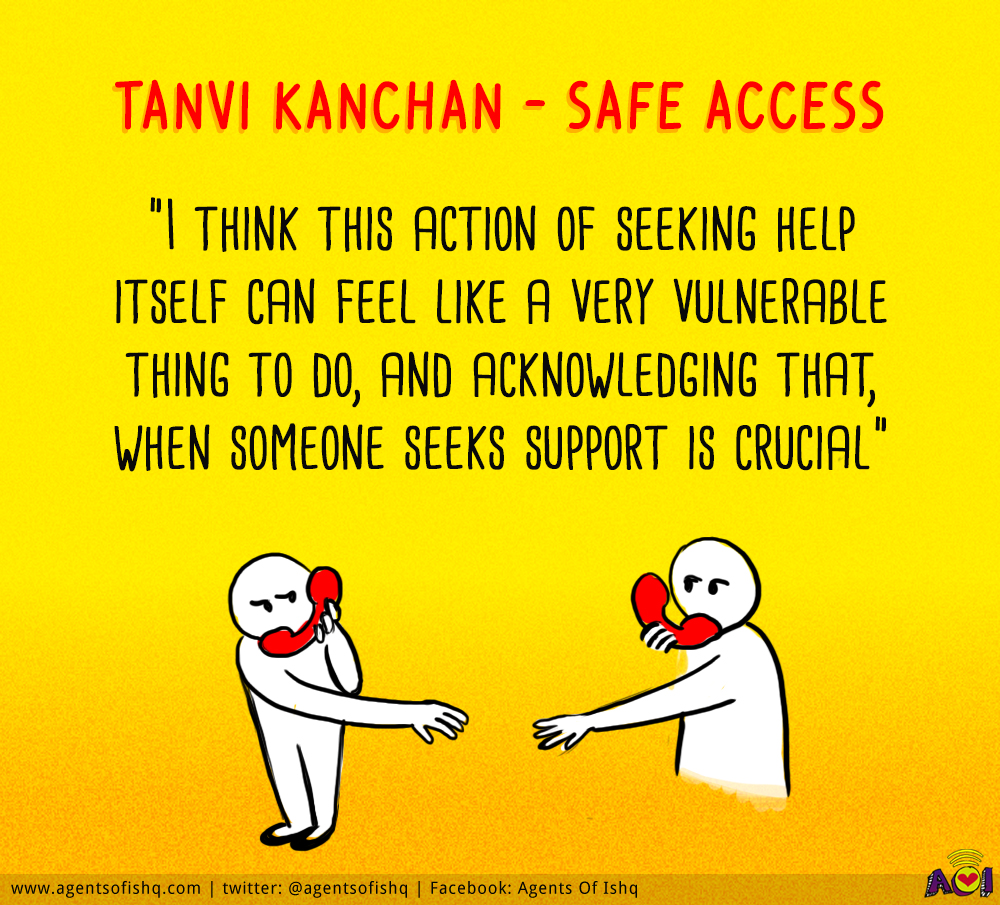
(Safe Access is a community-led initiative. They offer a Peer Support Service to respond to the emotional struggles faced by queer-trans individuals)
“I am a communications professional and a trained queer peer support provider. I work in tandem with Safe Access, where people reach out to me if they are going through emotional distress about their gender or sexual identities, and are looking for support. I think this action of seeking help itself can feel like a very vulnerable thing to do, and acknowledging that, when someone seeks support, is crucial. Someone coming to you for emotional support is putting themselves in a vulnerable position, and paying respect to that by acknowledging agency and power in their reaching out for support, can help them believe in their own capability and potential tooOften, we’re so focused on our responses that we forget there is another person who is actually being vulnerable in that space and it’s not so much about your response but the ability for you to make them feel safe and comfortable in doing that. Very often people just want to hear that you know and understand what they’re feeling. They don’t need someone to tell them what to do, they want to be heard. Having a space where you can just express your feelings and what you want to be and have someone listen and hear you can also be powerful. When you talk to a friend, it can be helpful, but it’s a two way street, and the idea of a friendship is that you are there for a person while they are also there for you. Whereas, something like this is just about you, it’s not about the person providing the support. We're just there to validate whatever you’re feeling or whatever you’re going through, and realizing that can be a powerful tool - because when you are able to let go of feelings of guilt, or reciprocity with the counselor, when you realize that that is a space for you to just be completely vulnerable. When people reach that point there can be quite an emotional catharsis of realising how much they’ve been holding onto and how much has been impacting them in their day to day life and realising that neither have people around them recognized the emotional burden that they carry, but nor have they recognized it for themselves. And it can be a very emotionally overwhelming moment for them to say, "wow I have been holding on to a lot." Once people actually feel safe enough to be vulnerable, there’s definitely a sense of emotional breakthrough for a lot of people who don’t realise how much they hold on to, and when they finally sit down in a session where they want to just talk and be honest. Coming in contact with so many queer persons in the country, you also realise that there’s so many of us living our own lives and really being quite resilient in our own ways. I think, for me it’s definitely been a journey of stepping back and being like, "okay how much of this do I truly believe myself and how much of this do I truly follow in my own life?" Being a peer support provider has definitely made me believe things for myself - that I’m also worthy of time, of care, of affection, of friendships , of relationships, that bring me joy, and that I care about. I think it’s been an impactful journey for me to realise that the things I have been helping people with in the service also apply to me and to my life as well.”

